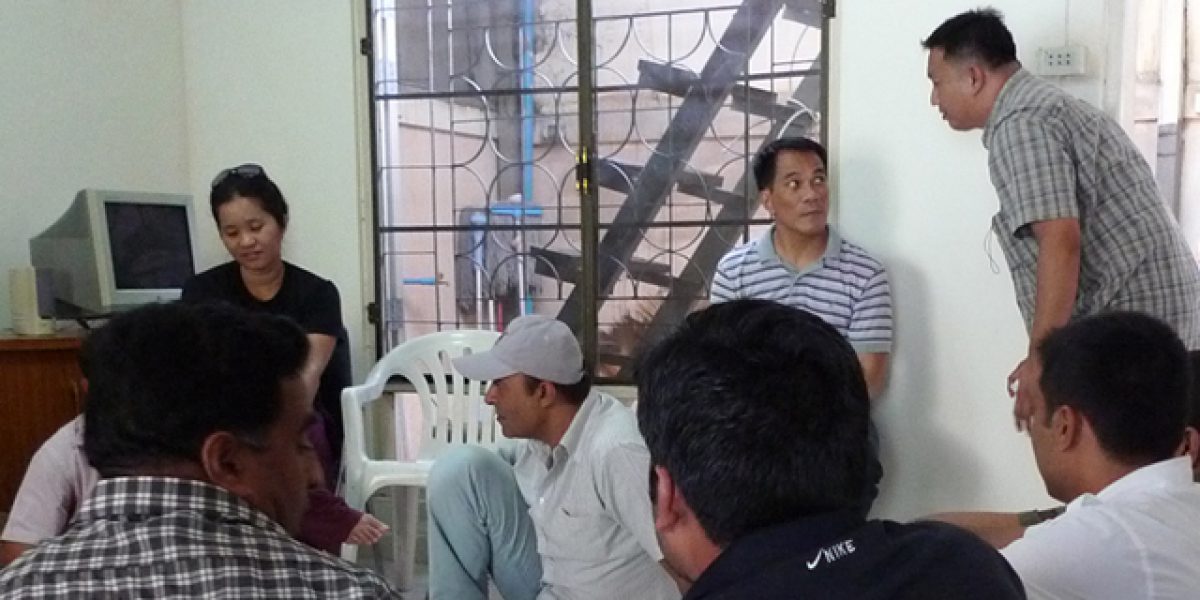Thailand: JRS helps establish community centre
26 August 2010|Oliver White

Bangkok, 26 August 2010 – At the beginning of the month, a group of ethnic Ahmadi asylum seekers finally opened the doors of their new community centre in the outskirts of Bangkok. The new centre is the result of a partnership between JRS and Ahmadi asylum seekers from Pakistan.
“One of our objectives is to organise and support asylum-seeker groups to respond to collective needs and help them build the capacity of their communities to respond to their needs”, explained JRS Thailand Urban Refugee Programme Director in Bangkok, Rufino Seva.
Unable to work legally, urban refugees and asylum seekers are often forced into crippling idleness. As well as providing them a degree of self-sufficiency and independence, the centre will also act as a meeting place where the community can come together to support one another. JRS hopes this approach will help improve the morale and wellbeing of asylum seekers in Bangkok.
In addition to providing advice and information, JRS is currently funding the new centre in the short term. In the long term, JRS hopes to help the community find sustainable funding sources. For a community whose members struggle to survive in Bangkok, this will not be easy. But the community is determined to succeed.
“We appreciate this opportunity to keep ourselves busy. We can organise activities at the centre which we think important. It will also be a place where JRS can provide services like legal advice and psychosocial counselling”, said Azhar, the community leader in charge of the centre.
Services and support
Refugees and asylum seekers are considered ‘illegal-migrants’ by the Thai authorities and are prevented from accessing public services, including education. The children of recognised refugees only receive one day’s schooling per week from an UN-supported NGO. Asylum seekers who cannot afford private and international schools are forced to keep their children at home.
“This centre is very important for our community. It will allow us to provide informal learning opportunities for our children closer to home,” explained Azhar.
Until recently, Pakistani Ahmadi asylum seekers had to travel to central Bangkok to avail of JRS services. Urban asylum seekers face considerable risks when travelling into the city due to their precarious legal status. This initiative reduces the risk by responding to asylum seekers within their own community.
“In a situation where refugees and asylum seekers are invisible, isolated, and vulnerable, there is a need to reach out and provide support at community level. Taking our services to the community is an effective way of responding to their needs and problems”, explained Mr Seva.
JRS is the only NGO organising support groups and community centres for urban asylum seekers in Thailand. Other organisations conduct community outreach and home visits. In the near future, JRS hopes these NGOs take their services and activities to the community centre.


